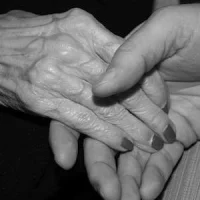According to a three-year analysis by researchers at Mount Sinai, applying palliative care principles to emergency departments may reduce the number of geriatric patients admitted to intensive care units and could possibly extend lives and reduce Medicare costs. The research is to be published in Health Affairs.
The data indicates that over half of Americans 65 years and older visit the emergency department in the last month of their lives. The rate and the number of patients being admitted to ICUs among older adults is also on the rise. The findings from this research suggest that the admission rates, hospital lengths of stay and costs can be improved with early palliative care inpatient consultation.
During this analysis, the changes in emergency care examined were developed through Mount Sinai's Geriatric Emergency Department Innovations in Care Through Workforce, Informatics and Structural Enhancements program, also known as GEDI WISE. The model has been developed by Lynne D. Richardson, MD and Professor of Emergency Medicine and of Population Health Science and Policy at the Icahn School of Medicine at Mount Sinai and team. Under this program, changes in ED staff training and practice were introduced at Mount Sinai. ED triage nurses were trained to screen patients 65 and older and identity the ones who might be at high risk of ED revisit and hospital readmission as well as those suitable for and desiring palliative care and hospice care.
The research team found that 59 percent of the 8519 visitors 65 years and older to Mount Sinai's ED were at a high risk for revisit and readmission. The common present diagnoses among these patients included chest pain, shortness of breath, malaise and fatigue, abdominal pain, and dizziness. The analysis showed that using the GEDI WISE model resulted in a 1.4 decrease in the ICU admission rate for ED patients 65 years and older. During the study period, there were 38,240 unique ED encounters and a 1.4 percent reduction corresponds to a decrease of 535 ICU admissions and an estimated savings of more than $3.14 million to Medicare.
"This study shows that identifying emergency patients who would benefit from palliative care interventions may both improve the quality of care and reduce costs," said Dr Richardson. "This could result in a better match of older adults' goals of care with the environments to which they are discharged from the ED, including decreased admissions to the ICU, and increased referrals to hospice and palliative care provided at home."
Source: Mount Sinai Hospital
Image Credit: Wikimedia Commons










